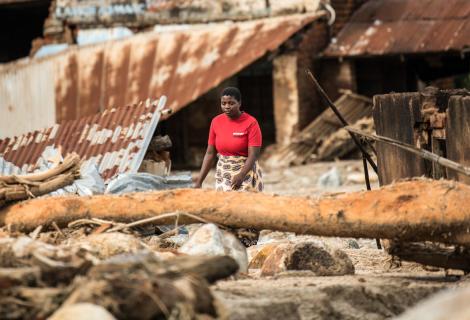
The countries that are most vulnerable to the climate crisis are also facing a debt crisis – and the need to service external debt in foreign currency has become a major accelerator of the climate crisis. There is a vicious cycle between the debt and climate crises, each reinforcing the other. It is thus profoundly contradictory that more than two-thirds of climate finance arrives in the form of loans that serve to exacerbate this debt crisis, forcing countries into actions that entrench the climate crisis. The real value of these loans is often over-stated and yet, alarmingly, many of the proposals presently being considered for expanding climate finance seem to be focused on even more loans – rather than exploring fairer and more sustainable alternatives.
ActionAid has analysed multiple sources of data on climate and debt and the results are worrying. We analysed data from the top third of countries deemed to be most vulnerable to the climate crisis, based on their level of exposure to climate change and their capacity to adapt to its negative effects on key sectors such as food production, water availability, the environment, key infrastructure, housing, and health.
Money that is supposed to help countries respond to the climate crisis should not actually make the climate crisis worse. But when climate finance comes in the form of loans, this is exactly what happens. Debt locks countries into a negative spiral – forcing governments to shape their economies and societies to pay back their debts and further harming the climate in the process. The pursuit of dollars by any means leads to more extraction of fossil fuels, more mining, more chemical-based industrial agriculture, more deforestation, and more environmental destruction that wreaks untold harm on human rights. There are clear alternatives, especially based on tax, but it is hard to justify tax reforms if all the revenue that is raised simply disappears to pay back crippling external debts. It is time for debt cancellation to become a central demand of climate justice advocates everywhere.
Download our report (below) to read more.